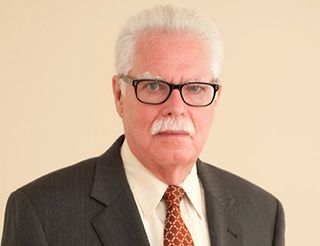Stakeholders Plan Title (II) Rematch

The FCC won a big victory in the D.C. appeals court last month when it ruled the commission had sufficiently justified its Title II-neutrality rules. But the last chapter has yet to be written in the years-long legal battle.
Internet service providers have vowed to continue the fight, either by appealing the three-judge panel decision to the full court, or by going straight to the Supreme Court.
Some interested parties huddled with reporters after the decision to talk about the implications of the court’s call, and prospects on the appeal.
They seemed to agree that the FCC’s decision to reclassify wireless under Title II might be fruitful ground for appeal, given the distinctions the FCC had previously drawn between wired and wireless, though they were not handicapping prospects for success.
Russ Hanser, partner at Washington law firm Wilkinson Barker Knauer, believes perhaps the Supreme Court would tackle such an issue, based on its views of particularly important agency decisions in which agencies have “reshaped” the statutory authority Congress gave it.
Attorney Andrew Schwartzman, who is on the other side of the issue, wasn’t buying that argument.
He calls “fanciful” the suggestion the Supreme Court wants to cut back on that traditional deference by suggesting some cases are “too big” for Congress to have meant to delegate the authority. “The Supreme Court has already said [in the Brand X case upholding the FCC’s previous definition of Internet access as an information service] that the reclassification issue was properly delegated to the FCC. I doubt that there is any other statute in the last few decades which so clearly delegated so much to the FCC for decision,” Schwartzman said.
Broadcasting & Cable Newsletter
The smarter way to stay on top of broadcasting and cable industry. Sign up below
Hanser cited an Obamacare case, in which the Supreme Court said in situations of such national import, the court’s traditional deference to agency decisions may be more limited. Hanser added that goes to the question about how much discretion agencies have.
He also said that when Congress gave FCC forbearance authority, most people considered that a deregulatory move. “There seems to be something strange to use it to vastly expand regulation, just not as far as it otherwise would have been expanded,” he said.
Speaking strategically, Hanser said he would not be surprised if appeals of the rules to the Supreme Court focused on how much authority agencies have to create regimes different from the ones anticipated in the statute.
Schwartzman, however, was not shy about offering up odds on an appeal, saying the chances for reversal are “close to zero.”
Given that the dissent in the case (Judge Williams would have remanded) was focused on how the FCC applied the law, rather than the FCC’s power to reclassify, which the court upheld, the “core legal issue” is not in play, Schwartzman said. He added that the only reason to seek rehearing is a tactical one to put off going to the Supreme Court until there is a ninth Justice.
As to the court itself, Schwartzman sees no split in the circuit for it to resolve, and “it has already said that the central provision is ambiguous, and even Judge Williams agreed that the FCC has the power to reclassify. The only other issues in the case are garden variety administrative law statutory questions of no interest to the Supreme Court, plus a nearly frivolous First Amendment question.”
Time will tell if other legal minds will be taking up the issue.
3 THINGS TO KNOW ABOUT THE FORWARD AUCTION
As The FCC prepares to start the second half of its spectrum auction next month, here are three things to keep in mind as the online fun begins:
1. THE FCC WILL BE SETTING THE PRICES. As with the reverse auction, the FCC will set a price—though in this case it will move up incrementally rather than down—and see how many folks meet it, then raise the bar until there is only one.
2. IT AIN’T OVER ‘TIL ITS OVER. The auction won’t actually be over after all the winning bids are accepted. There will be an extra round. Initially, buyers will be bidding on generic blocks in a market. The extra round will be just for the winners as they bid on specific frequencies.
3. A CAUTION AGAINST BIG BOOSTERS. There is an “activity” rule to prevent bidders from swooping in from the sidelines. In each round of the auction, a bidder must bid on 95% of the census blocks it has signaled it wants to bid on.
Contributing editor John Eggerton has been an editor and/or writer on media regulation, legislation and policy for over four decades, including covering the FCC, FTC, Congress, the major media trade associations, and the federal courts. In addition to Multichannel News and Broadcasting + Cable, his work has appeared in Radio World, TV Technology, TV Fax, This Week in Consumer Electronics, Variety and the Encyclopedia Britannica.

